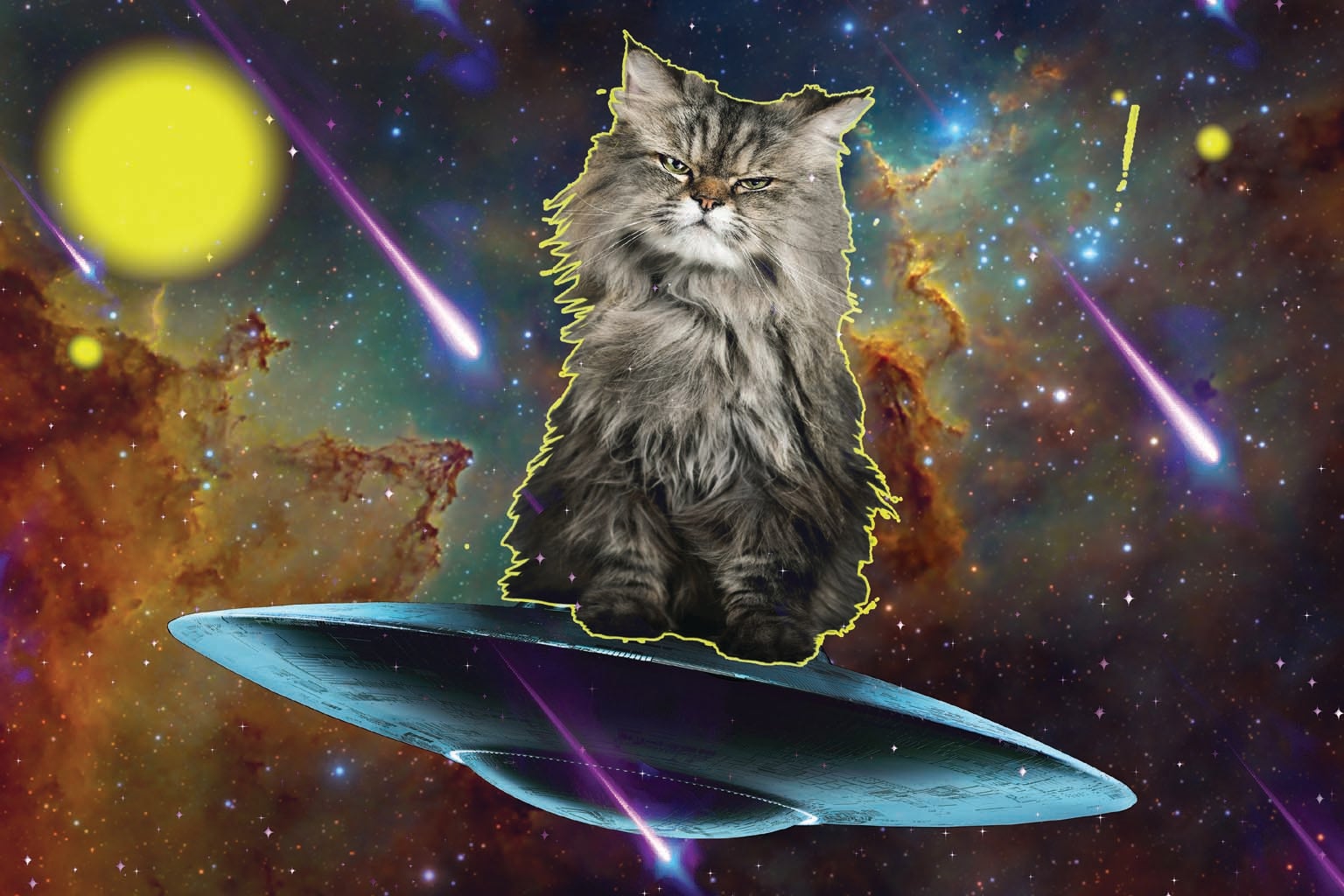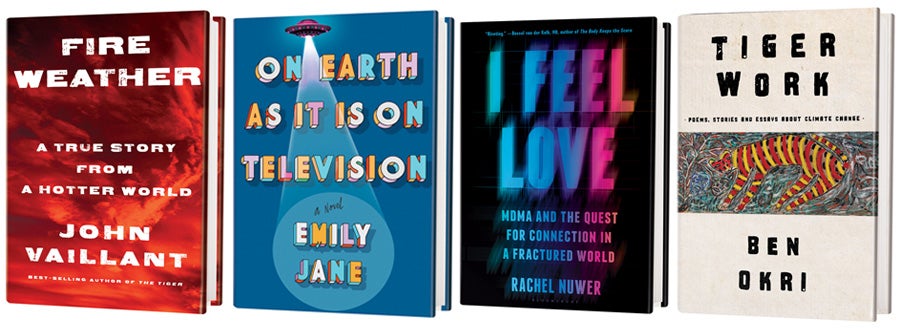[ad_1]
Nonfiction
Uncontrolled Burn up
Absurdity reigns when a wildfire threatens a city reason-crafted for oil extraction
Fire Climate: A True Tale from a Hotter World

by John Vaillant

Knopf, 2023 ($32.50)
In May perhaps 2016 a wildfire commenced around Fort McMurray, the boomtown crafted all-around the oil sands in Alberta, Canada. The fireplace grew to almost 1.5 million acres and turned its individual kind of temperature program, creating fearsome pyrocumulonimbus clouds that produced their possess lightning. It was a vivid present day allegory: a blaze of biblical proportions threatening a single of humanity’s biggest functions of hubris.
Few writers ended up far better positioned to tell the story than John Vaillant, a Vancouver-centered journalist and novelist who is at his ideal in the fraught sites wherever desperate individuals clash with their habitats. Vaillant’s gorgeous 1st reserve, The Golden Spruce, facilities on an act of eco-sabotage in the Haida Gwaii archipelago in Canada, and he rose to broader prominence with The Tiger, a bestselling account of a predator that appeared to choose vengeance on hunters in jap Russia. In Hearth Weather, Vaillant travels to a town where revenue procedures, nature is an object of conquest, and a ridge on the land has been “weeping raw bitumen that glistened like liquid obsidian.”
In the meantime North The usa is caught in a human-produced wildfire deficit for the reason that a century of suppression has created dense levels of timber primed to burn off. In Alberta’s subarctic boreal forests, thick with spruce and aspen, all those fires are typically massive. “When it burns, it goes off like a carbon bomb,” Vaillant writes.
To narrate the activities of the summer months of 2016, Vaillant reconstructs the actions of an oil-sands personnel, numerous firefighters and the substantially maligned unexpected emergency-reaction leadership, among the others. Their activities have enough drama, but their lives seldom hook up. Fort McMurray, like a lot of boomtowns, is a transient put. “Nobody retires listed here, nobody dies below,” a pastor named Lucas Welsh tells Vaillant. They also don’t appear to interact that significantly. In this relational void, in which the tale generally feels fractionated fairly than woven, the wildfire itself emerges as the book’s most important character. The option feels intentional—the blaze’s fury has a thematic resonance with the tiger’s—and Vaillant goes to terrific lengths to show that humans have invited a comeuppance. “Miles over the town, hurricane-force downdrafts hurled fusillades of black hail back again to earth,” Vaillant writes, “just as they had carried out in historic Egypt.”
In modern several years some journalists who generate about wildfires have begun averting this supercharged language of aggression. The ingrained Western tendency to characterize wildfire as invading and monstrous reinforces a colonial assumption that we can are living aside from what is a all-natural and regenerative drive. Vaillant regularly frames the fire in explosive or biblical phrases and the subsequent energy to help you save Fort McMurray as a war, with firefighters pitted in opposition to the flames. The effect is unquestionably dramatic, and it underscores his central position that megafires these types of as this just one are not solely natural and are exacerbated by oil-pushed greed. “If unregulated free of charge industry capitalism have been a chemical response,” he writes, “it would be a wildfire in crossover disorders.”
His reporting on the phenomenon of “crossover”—described in this article as the second when temperature surpasses relative humidity and a blaze is unleashed— is fascinating, as is the insight that the combustive vitality introduced in Fort McMurray was similar to a nuclear bomb’s. But Vaillant also characterizes the wildfire as a “regional apocalypse” and imminent flashover—the level of spontaneous combustion in an enclosed space—as “a malevolent entity from a further dimension breaking by way of to this one particular.”
In The Tiger, Vaillant toed an awfully good line to acquire the reader within the cat’s intellect, working with science reporting and a rigorous story composition to propel a thriller of natural heritage. In Fireplace Weather conditions, there are fewer narrative guardrails, and as a result the reserve can experience meandering, with digressions that look indulgent. One chapter is dedicated to the notion, proposed by Vaillant, that the human species ought to be renamed Homo fraglans, liberally translated as “burning guy.” There are epigraphs from Ovid, Herman Melville and Shakespeare when one from Cormac McCarthy’s The Highway appears at the prime of a different chapter, it feels pretty much unavoidable.
In moments of concentration, Hearth Weather conditions is animated by a intriguing background of regional exploitation and illustrative absurdities from a get-loaded-brief metropolis burning down. A fleeing resident insists on locking his door as flames engulf his avenue a golfer, freshly evacuated from the training course, stops to decide on up his dry cleansing a scholar essentially tells her brother, “Don’t glimpse up!”
You can find a unforgettable character named Wayne McGrath, a person of lots of Newfoundlanders who came to Fort McMurray immediately after the collapse of the cod industry—an before environmental fiasco established by capitalistic appetites. McGrath goes to astonishing efforts to conserve a beloved Harley-Davidson just before using into the sunset.
McGrath’s troubling tale would not conclude there, and it alone could possibly have been plenty of to anchor the narrative—as could possibly the experiences of the firefighters who courageously fought the blaze when, as Vaillant wonderfully writes, “even the ravens experienced fled.”
But Vaillant seeks to wrangle anything continue to more grandiose from the content, and in his aggravation with our collective failures, he leaves behind numerous of his characters. He is not the first excellent author to level out that, in an age of greed, we could all do with much more restraint. He is also not the initially to veer into unrestrained activism at the expenditure of a story—one that, in this circumstance, was powerful more than enough on its personal deserves. —Abe Streep
Abe Streep is a journalist based mostly in Santa Fe, N.M., and author of Brothers on Three: A Genuine Tale of Household, Resistance, and Hope on a Reservation in Montana (Celadon, 2021).
Fiction
 

Invasion Meme
An alien-induced existential disaster in the on-line age

On Earth as It Is on Television

by Emily Jane

Hyperion Avenue, 2023 ($27.99)
Glittering, unusual spaceships look and hover more than just about every big metropolis on Earth of course, that is acquainted. What is unfamiliar about this debut from Emily Jane is the way first get hold of with an alien species provides individuals jointly and how it tears them apart—as nicely as the important role of cats.
Published for an exceptionally on the web age, On Earth as It Is on Tv follows a handful of characters, every of whom need to come to a decision who they will be in a globe fundamentally modified by the expertise that we are not on your own and are never ever unwatched. It delivers audience into the brain of a very long-comatose male named Oliver, whose to start with trace of consciousness in 20 years coincides with the invasion. It grants a beguiling window into the marriage of Blaine and his spouse, who glimpse excellent from the exterior but begin to disintegrate the minute the environment changes. It asks deep thoughts about what constitutes a significant everyday living via Heather, a woman who realizes she largely has not lived one, so significantly.
The novel also follows the epic adventure of a “chonky boi” cat named Mr. Meow-Mitts, who gets a mysterious information to “run run run” toward a accumulating of cats when the aliens land. The language of cat adoration is unfold thick, as charming as buttercream and similarly sweet.
If you relished Lindsay Ellis’s Axiom’s Stop but like lighter fare, you’ll locate deep comfort and ease and pleasure in Jane’s exploration of what it suggests to be alien and how we all take turns becoming on the outside. Like a science-fiction novel that runs in the margins of I Can Has Cheezburger? memes, On Earth as It Is on Tv is an unusually entertaining and absurd take on what may well usually be just another imitation of Independence Working day or The Day the Earth Stood Nonetheless. It is wise about shopper society and the American craving to convert every little thing into fact Tv set with no applying people smarts to bite. In this way, Jane’s do the job is a wonderful example of what is normally named noblebright fiction (as an alternate to the subgenre of grimdark): it serves up coronary heart, but no person had to be reduce open to get hold of it. —Meg Elison
In Brief
I Feel Really like: MDMA and the Quest for Relationship in a Fractured Planet

by Rachel Nuwer

Bloomsbury, 2023 ($28.99)
If you happen to be hunting to parse the hype about MDMA, this excellently investigated e book by Scientific American contributor Rachel Nuwer gathers perspectives from skeptics and supporters alike: law enforcement, psychiatrists, and individuals with past and existing working experience getting the drug. Nuwer’s journalistic intuition to address warnings of its attainable physiological effects and to advocate for regulation-abiding behavior cleverly performs off her examination of the political broadsides that have extensive maligned the drug’s popularity. The compelling narrative, woven from psychological testimonies and medical research, will make a convincing argument for MDMA’s prospective as a therapeutic complement, in particular for these functioning by way of trauma. —Sam Miller
Tiger Work: Poems, Stories and Essays about Local weather Improve

by Ben Okri

Other Press, 2023 ($24.99)
Rejecting the expression “climate emergency” in favor of “humanity crisis,” Ben Okri puts forth an indictment of humanity that is counterbalanced only by his perception in its potential for evolution. Despite the fact that his collection is diverse—it features poems about plastic, parables about drinking water, a letter to Earth and vignettes describing our civilization in its waning days—Okri’s simple, stirring language operates through it like a present, providing sudden shocks of equally ache and inspiration. Imbued with an “existential creative imagination to provide the unavoidable fact of our occasions,” this quantity delivers an unflinching eyesight of who we are and who we need to turn out to be to survive. —Dana Dunham

[ad_2]
Source url






